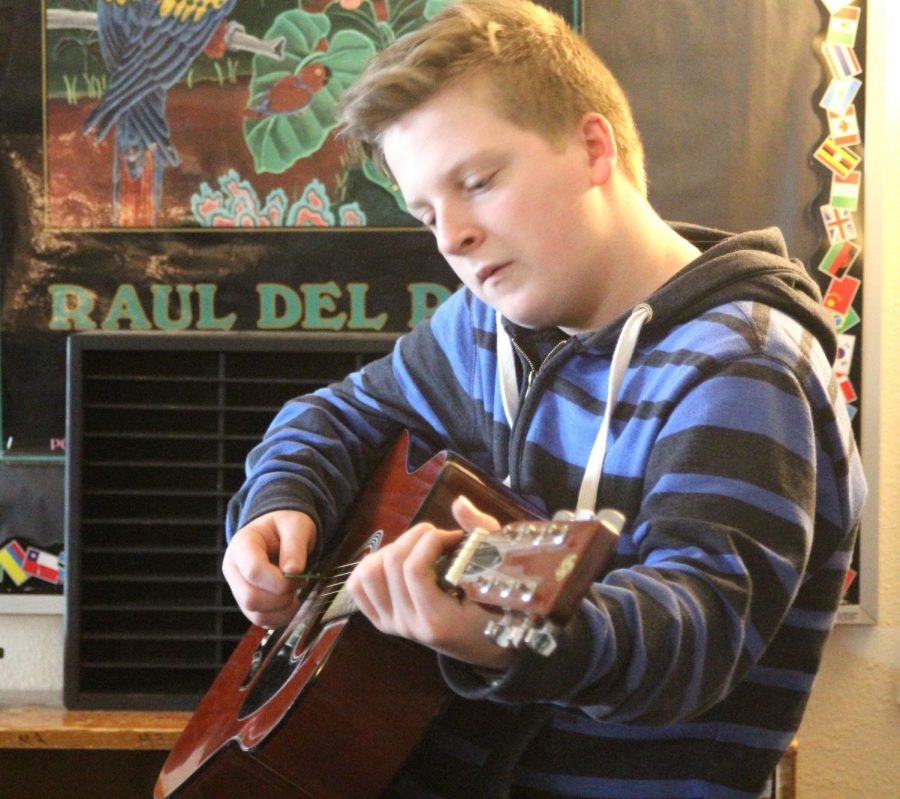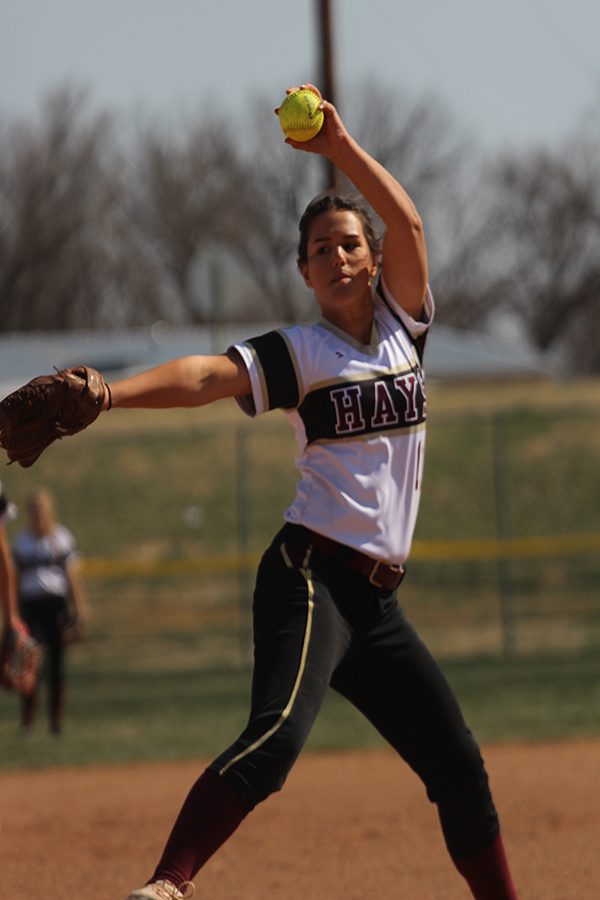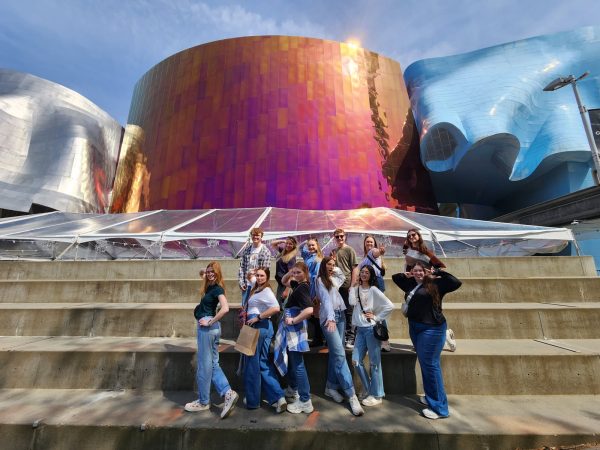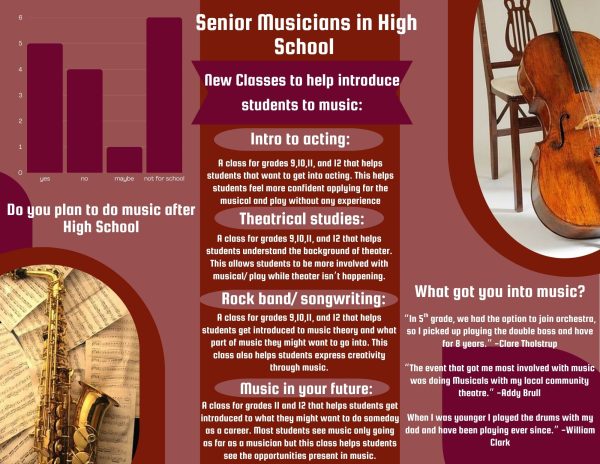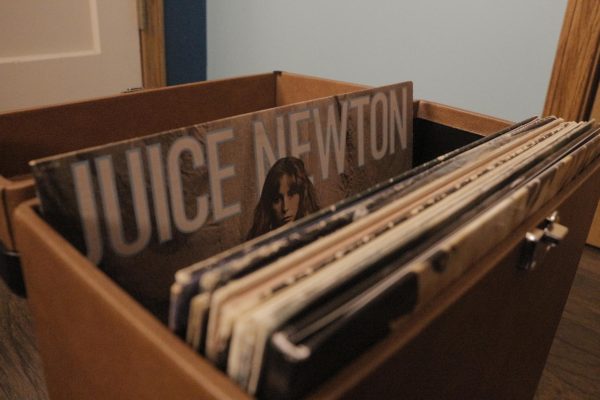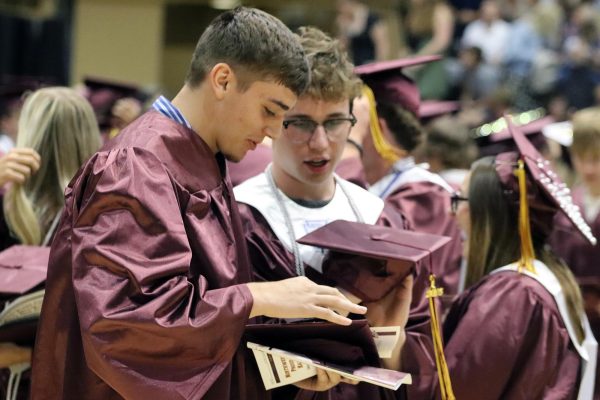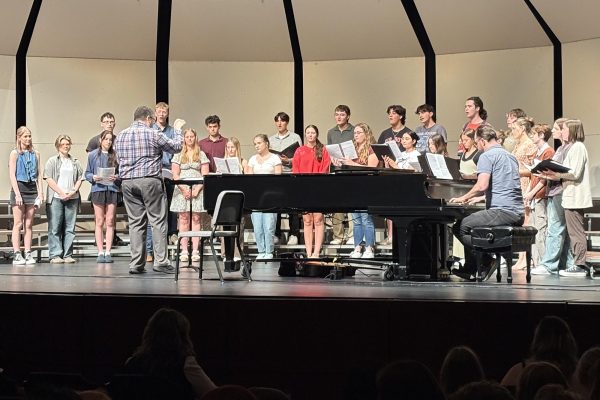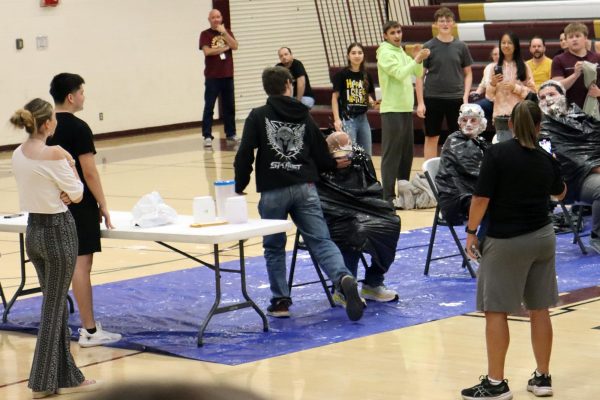Sports, clubs, work monopolize student after school time; participation gives students experience for future
Sophomore Isaac Howard practices the guitar during Guitar Club, which takes place after school on Wednesday. The club was started in 2015 by Spanish instructor Matthew Whitney.
The bell rings. High schoolers file out into the hallways, all pushing their way to the large metal doors, so they can escape the building they spent over a third of their day in.
“I’m so happy the day is over,” junior Sydney Winter said. “I’m going to drink a snoball, take a nap and watch a movie, actually watch Glee.”
The day isn’t over for some, though. Students of all grades trudge to the locker rooms to start their after-school sports practice.
“I go to softball practice until probably around six,” junior Shyann Schumacher said. “I think it’s nice (having practice at 3:30) because then you don’t have a break in between to get tired or drowsy before you go back at it.”
While the rigorous schedule, including weekly games and daily practices may affect the social and academic lives of the typical high schooler, Schumacher has found she needs little time for homework and has bonded with the team.
“I do most of my homework in GPS or in the morning,” Schumacher said. “It doesn’t really affect my social life because I talk to most of my friends during softball.”
Attending after school activities is mainstream for high schoolers involved in the typical club or sport, and while morning sessions are less practiced, they still make appearances.
A club recently started meets on Wednesday mornings at 7 a.m. The meetings consist of praise and worship, guest speakers and group discussions.
“The group we started is called G1,” senior Karee Dinkel said. “It stands for God First.”
https://youtu.be/w5pbyW4Rn1A]http://%20https://youtu.be/w5pbyW4Rn1A
Dinkel is a co-founder of the club along with senior Kamree Markley. The two decided to create the club after attending a college ministry at Celebration Church.
“My faith is a big part of my life,” Dinkel said. “I’ve seen how God has worked in my life, and it’s something that when you how it can work in your life, you want to share it with others.
“That’s really what’s important for me, mainly. I want to spread that happiness because I know how that feels, and I want others to incorporate that into their lives.”
Markley is the one who wanted to bring the idea to Principal Martin Straub to see whether is could become a school organization, and it passed, along with countless others including Red Cross Club, Guitar Club, Fishing Club, Creative Writing Club and Anime Club.
“I am vice president (of Red Cross Club),” senior Emily Ricke said. “I think this will help me because it gave me experience in leadership because I’m going into leadership, Leadership Community at Fort Hays. It gave me experience to go into that.”
Students who try to balance handing their work in on time, having a social life, training in their preferred sport and attending regular club meetings can make time management a challenge. For some, adding in the sport or the club isn’t worth the hassle, so they focus on what they’re going to have to do when older. Work.
“I work for DSNWK (Developmental Services of Northwestern Kansas), which works with special education kids,” junior Connor Olson said. “The job that I want to go into is Psychology, and I love working with special education kids because my aunt did it, and she always got me to volunteer and help at DSNWK. I really started to enjoy it, so I became passionate about it.”
Finding a job in high school is a troubling feat since many businesses will not hire you without prior experience.
“I got the job by volunteering at DSNWK, and one of the parents of the kids there asked me if I’d like to work with her kids because I got along with t hem really well,” Olson said. “The training was basically being told what to do when something wrong goes on. I was mentored by a college guy who used to work with them.”
However, Olson believes the training was worth it. Without the job, he would not have been able to build the relationships he has with the kids, let alone meet them.
“I think it’s important because those kids are so much more special than everyone treats them and gives them credit for,” Olson said. “All those kids, yes they have those problems, but a lot of them are a lot smarter than us. They’re a lot of fun to be around, and they always have a great attitude.”
19ibraun@usd489.com
,
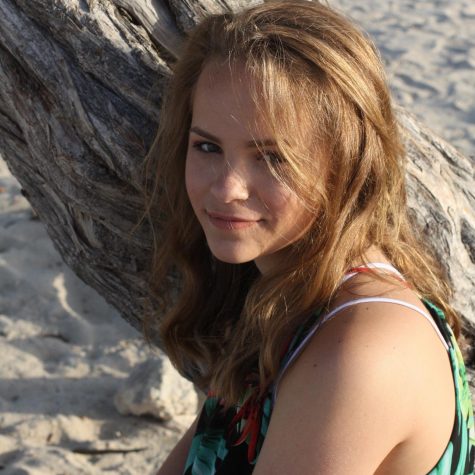
Isabelle Braun is a senior who loves talking to new people and spending time with friends. She is very driven and plans to make her senior year the best...


